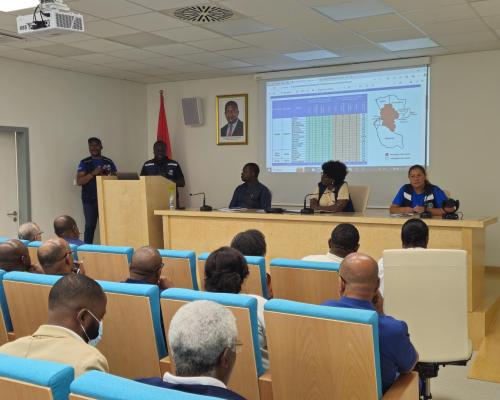
Luanda – On 11 January 2025, WHO took part in a high-level meeting convened by the Minister of Health at the General Hospital of Cacuaco to address Angola’s cholera. WHO commended the Governments actions to effectively coordinate a multisector team, timely detect and respond to the outbreak including promptly sharing information with all relevant authorities in compliance with the International Health Regulations (IHR 2005).
The outbreak has so far affected three provinces—Luanda, Icolo e Bengo, and Bengo—with 119 confirmed cases reported as of 10 January 2025. The first case was reported on 5th January 2025. The high level meeting brought together high level representatives, including 3 ministers, from multiple ministries, including Education, Tourism, Energy and Water, Social Communication, Higher Education, Social Affairs, Agriculture, Environment, and Territorial Administration, as well as the CEO of EPAL, Angola’s national water company. Key health development partners such as UNICEF and the World Bank also participated.
The Ministry of Health presented a detailed response plan to tackle the outbreak, outlining strategies for containment and mitigation. WHO raised concerns about the high case fatality rate, emphasizing the need for immediate and strengthened actions at both the community and hospital levels to reduce mortality rates.
Preparedness efforts in provinces not yet affected by the outbreak were commended, while the global challenge of vaccine scarcity was highlighted. WHO noted that, with many countries currently experiencing cholera outbreaks and limited vaccine doses available in the global stockpild managed by the International Coordinating Group (ICG), it remains committed to advocating for vaccine allocations to Angola.
A feedback session followed, during which several critical issues were addressed:
- WHO emphasized the importance of working with traditional leaders to encourage the use of oral rehydration solutions in communities, particularly for patients traveling to healthcare facilities.
- Strengthening case management and hospital interventions was identified as an immediate priority.
- The need for improved water and sanitation infrastructure including hygiene was highlighted, with EPAL recognized as a key player in ensuring clean water access.
Since onset of the outbreak, WHO has provided critical support, which includes assistance in risk communication and community engagement (RCCE), surveillance, case management, logistics, and documentation.
WHO reiterated their commitment together with UN and other partners in supporting the Government in ensuring the cholera outbreak is contained within the shortest possible time.
The meeting concluded with a brief field visit to the General Hospital of Cacuaco, allowing participants to assess the conditions and immediate needs on the ground.

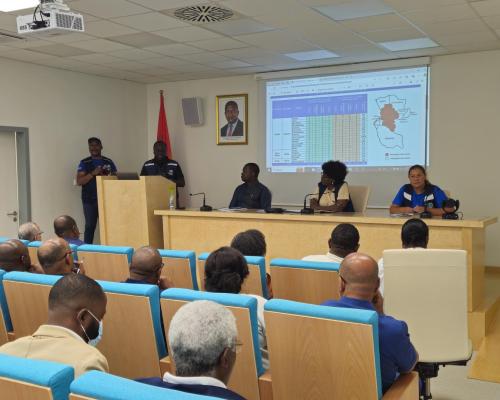
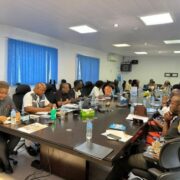

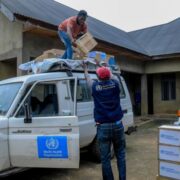
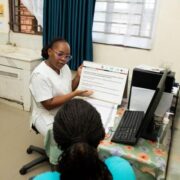
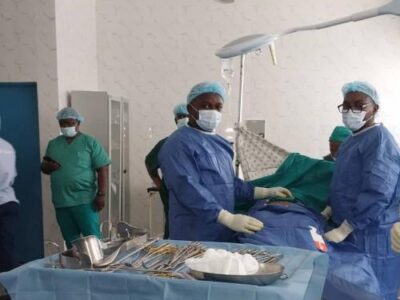
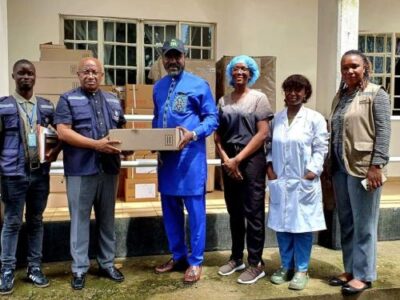
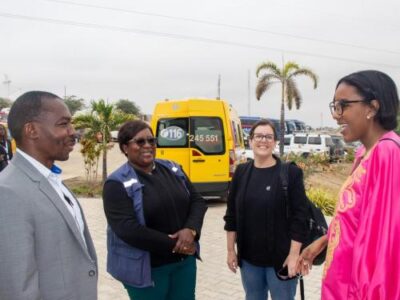
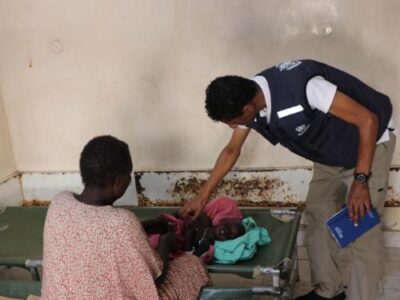

Comments